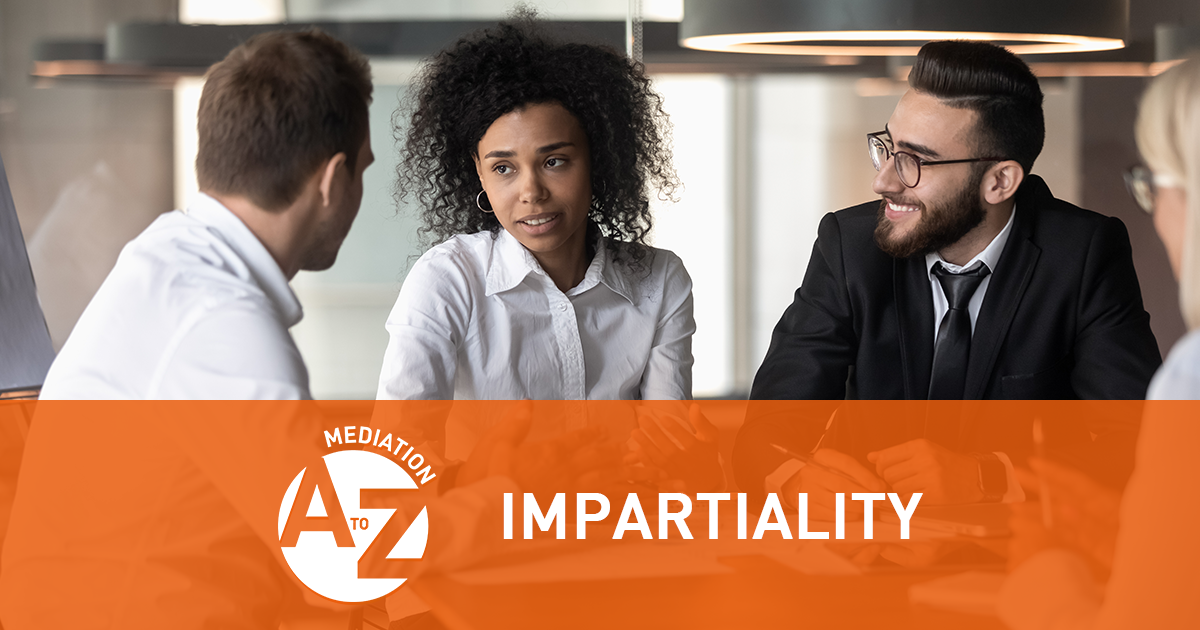
Posted on: July 24th, 2023

On our flagship training course, the Interpersonal Mediation Practitioner’s Certificate, there’s a group activity that perfectly highlights the importance of IMPARTIALITY.
Split into pairs, learners are handed a sheet of paper with two large text boxes, and are asked to:
“Think of five trivial things that would be likely to bias you towards someone”
“Think of five trivial things that would be likely to bias you against someone”
And whilst we can always have a good laugh at some of the more unusual answers, there are a number of common traits that frequently pop up.
We often hear aspects of how people look: having tattoos or longer hair, for example, or specific ways in which people behave: overly-extroverted or too loud are always popular responses.
It’s clear to see that it doesn’t take much for our opinion of someone to be influenced, regardless of whether we actually know them as people or not. And while this is completely natural, it simply cannot get in the way of our practice as mediators.
Mediation is a unique process where the plan of action is decided entirely by the disputing parties. While there is a third-party present, they’re only there to facilitate the conversation and to make sure that it stays on track. Most importantly, they’re not there to make a judgement, to apportion blame, or to take sides.
So how do we stay impartial?
Let’s first be clear – we’re not saying that mediators should be robots that are completely devoid of personality or emotions (don’t get us started on AI mediation!) Quite the opposite in fact, as these are important in adding a human element to mediation.
And when you think about it, impartiality is not a natural occurrence. As human beings, we have an innate tendency to ‘judge’ everyone we meet: deciding whether we like an individual, whether we should be afraid of them, and everything in between.
The mediator does, however, need to keep these biases in check. They may well think that one of the parties is entirely at fault, or that one of them looks more trustworthy and reliable, but this should not influence how they manage the mediation process. In the professional position that they are in, mediators need to be aware of their own biases, take steps to correct them, and treat all parties in exactly the same way.
If you require mediation services, or training as an individual or an organisation, please get in touch with our friendly team today.